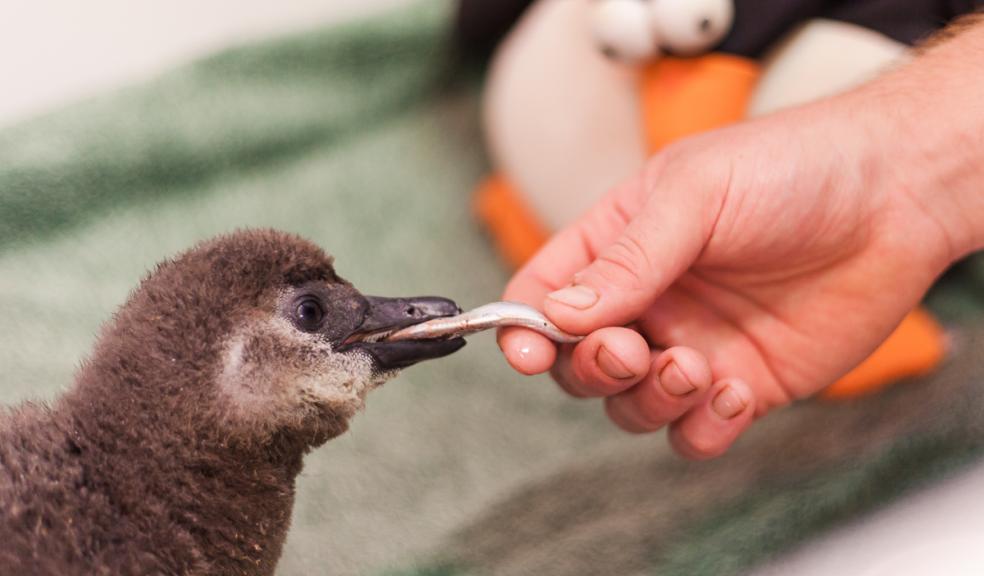
Fish and chicks at Living Coasts
An African penguin chick has been nursed back to health with fish soup by dedicated zoo keepers. The decision to remove the chick from its parents was taken when keepers saw signs of illness and a lack of appetite.
Since then, staff at Living Coasts, Torquay’s coastal zoo and aquarium, have been feeding the chick every 3 hours from 7.30 in the morning to 7.30 at night. The only thing on the menu is fish; at first this was blended into a liquid soup, but the chick has now moved on to solids.
The chick hatched in early September to penguin parents Burt and his somewhat oddly-named partner, New Ping. Living Coasts Curator Clare Rugg explained: “It was sickly, so we decided to hand rear. We don’t know at this stage what caused the illness, but it seems to have recovered thanks to the hard work of the keeping team.”
Mum and Dad are both important for the gene pool in zoo-managed African penguins, which means the chick is important for the future of both the breeding programme and the species.
The extra workload of caring for the little bird has been divided between the keeping team, including Head Keeper Lois Rowell and keepers Jason Keller, Lisa Jones and Kayleigh Lovegrove. The chick has been living in the zoo’s care building, which provides steady warmth. Its constant, comforting companion is a cuddly penguin toy.
At first it was given a formula of skinned herring fillets and supplements blended with water, delivered gently through a syringe. It was then weaned onto skinned sprat fillets offered by tweezers, sprat slices and now small whole sprats and sprat slices. “We stimulate the chick by wiggling our fingers to recreate the natural feeding behaviour of begging,” explains Jason.
And it’s not just a matter of feeding it as much as you can. Jason: “We feed it no more than 10% of its morning body weight per feed five times a day.” Everything is written down and carefully recorded.
Although it’s still young, the chick can be inquisitive and follow the moving fingers of a keeper. It also loves to cuddle into its penguin toy. Staff suspect it will turn into a character when it’s older and is mixed back into the colony. Before that, however, it will go outside into a crèche at about two months; it’s important that the youngster gets some English Riviera sunshine when it can.
Are there any tricks to rearing a penguin? Clare: “Patience, dedication – and not being put off by the smell of fish…!” Living Coasts is home to 32 female African penguins and 31 males, plus the chick. Penguins might be able to tell, but keeping staff have to rely on a spot of science to distinguish boys from girls: “We will sex the chick and give it a name once a DNA sample can be taken,” says Jason. “We have to wait until it has moulted out of its baby down feathers around the age of 10 to 12 weeks.”












